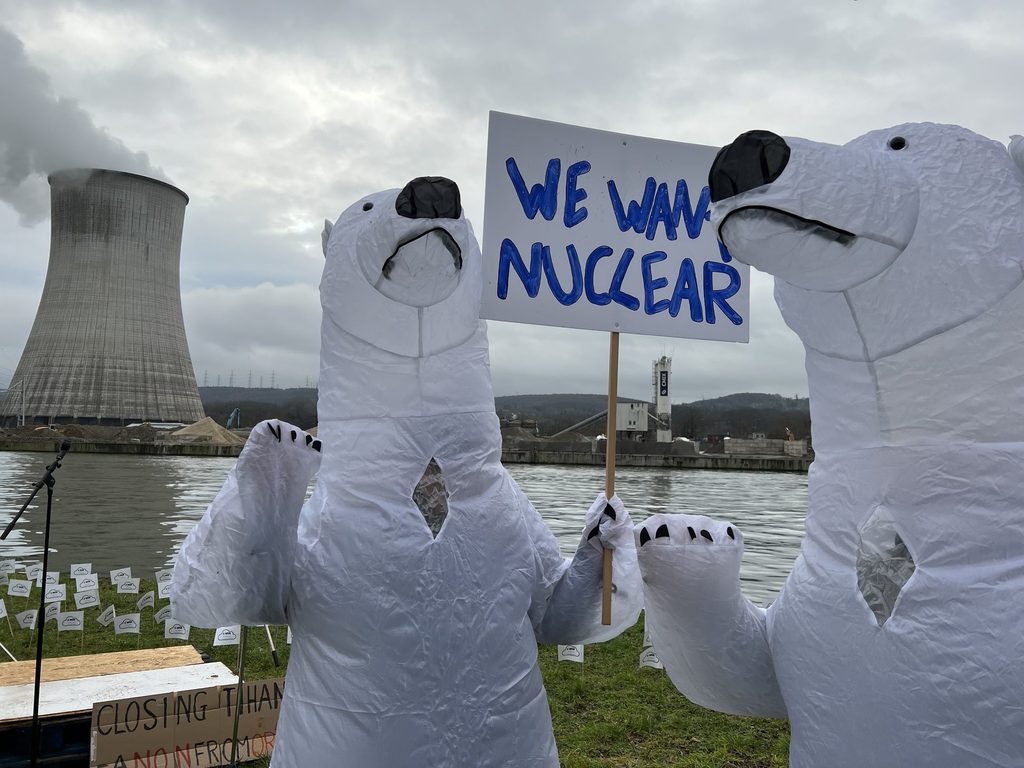After months of deliberation and negotiations, an "interim" deal has been reached to extend Belgium's youngest nuclear reactors, Doel 4 and Tihange 3.
Engie (which operates Belgium's nuclear power plants) and the Federal Government announced on Thursday morning that they had reached an "interim" agreement specifying the terms and conditions for the 10-year extension of the newest Belgian reactors, which aims to strike a balance in the distribution of risks.
"The extension of the Doel 4 and Tihange 3 power plants for a further 10 years is now set in stone. This agreement is important for our energy future and for Belgian households," said Prime Minister Alexander De Croo.
"It strengthens our electricity supply, reduces our country's energy dependence and guarantees the production of low-carbon, low-cost electricity in Belgium."
'Preferred scenarios'
The announcement, which was finalised two days ahead of the 30 June deadline that Engie had pushed for, follows the agreement in principle signed at the start of this year stating that the power plants would be ready by November 2026.
Both parties stated in the latest agreement that they are "making every effort to restart both of the youngest reactors, referring to a 'preferred scenario' of restarting in November 2025, one year ahead of the previous deadline, provided the "regulations are effectively changed as announced."
This would address the fears of possible power shortages in the winters of 2025 and 2026 during work on the plant, which would see Belgium’s energy supply significantly weakened due to the lack of nuclear power plants currently producing energy.
However, the statement added that in the other scenario, the restart won't be until November 2026. Now, a legal structure will be set up for the two extended nuclear reactors, of which the Belgian state and Engie will become joint owners.
"The war in Ukraine has profoundly changed the European energy landscape, and it has become urgent to rid ourselves of our dependence on fossil fuels and take our energy back into our own hands. This is what we are doing by extending two nuclear reactors and, at the same time, speeding up the energy transition," said Tinne Van der Straeten, Minister for Energy.
The statement did not mention extending the three older nuclear power plants (Doel 1 and 2 and Tihange 1) should be extended to cover the 2025-2026 winters.
Nuclear clean-up
The interim agreement also touched on financing the decommissioning of the nuclear plants and disposal of the radioactive waste.
Based on research by the Belgian National Agency for Radioactive Waste and Enriched Fissile Material (ONDRAF), it set a lump sum of €15 billion for the future costs related to the disposal and processing of nuclear waste from all of its nuclear facilities.
This is added to the amounts already provided for decommissioning the nuclear plants. "Engie's total nuclear liabilities towards Belgium amount to at least €23 billion," the two parties reported in a press release.
Related News
- Belgian Energy Transition Fund sponsors 21 new projects
- High energy prices pose 'real risk' to Belgium's industry, study finds
"This gives ENGIE the visibility it needs of the overall cost of nuclear waste management and significantly reduces the risks associated with extending the life of the two units," Catherine MacGregor, CEO of ENGIE added.
"This is another fundamental step towards the extension of Doel 4 and Tihange 3, for which ENGIE is fully and responsibly committed."

